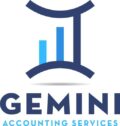Welcome back to our Ultimate Guide to Small Business Finances series. In this third entry, we’re focusing on a vital component of your operations: payment solutions. Whether you operate a bustling brick-and-mortar store, oversee an online marketplace, or you are a freelancer, choosing the right payment system isn’t just about processing transactions—it’s about enhancing your bottom line.
We will take a deep dive into the different payment systems available, we’ll guide you in selecting the most appropriate provider to boost your financial performance. Dive deep with us as we explore how to ensure your business does more than survive—it thrives, thanks to effective payment solutions.
Effective Payment Solutions for Your Business
Whether your business is a physical storefront, an online shop, or even a freelancing capacity, having a reliable payment system is a must. The method of payment is not just essential for facilitating sales; it also determines your profit efficiency. Below are some payment systems explained to help you decide what is right for you.
Choosing the Right Payment Provider
Decide the most appropriate payment providers. You must choose a provider that will allow you to make profits significantly. Compare payment transaction fees and any integration fees that you may incur.
Payment Methods
In-Person Payments
In-person payments are mostly used for physical businesses such as retail outlets. The most common systems include a Point of Sales which is a system that includes your cash register and credit card reading systems. Your bank may offer you a merchant account that connects the customers’ banks to your system allowing you and your customers to transact smoothly.
Online Payments Integration
Online businesses will need a payment gateway to process credit card payments. Shopify offers Shopify Payments. This product allows you to process powered by Stripe. Alternatively, Stripe offers online payment solutions that make it fast and easy for the clients to check out.
Mobile Payment Solutions
Mobile business models, such as food trucks and car hire services, should have portable payment systems that allow customers to pay wherever they are. For example, a mobile card reader such as Square enables you to make transactions while in the clients’ premises. You have to find out what transaction fees apply to these systems, so you can choose one based on your monthly expected volume.
Streamlined Invoicing for Freelancers
As a freelancer, you need an automated invoicing system to help collect payments. Freshbooks is one such software which allows for recurring billing and easy payment options. It helps freelancers efficiently manage their time and focus on productive activities.
Balanced Payroll expansion
For growing business models with multiple workers, you will need a payroll system. Gusto is a platform that makes the process less cumbersome and automatically handles your benefits too. You will need to classify your employees correctly as per the IRS rules to avoid being penalized. This is crucial because errors on your end can result in huge fines for your business.
Business models vary and so do their demands. The correct choice of payment integrations and payroll systems will boost efficiency.
Understanding Tax Responsibilities for Your Business
Tax obligations are one of the most critical components that a business owner has to consider. Taxes can be multilayered, ranging from federal to state to local levels. Particular taxes are dependent on a variety of variables, including the geographic area of your business, corporate form, and the goods or services provided. Here’s an overview of several of the most significant taxes that most small businesses encounter.
Business Income Taxes
All businesses must pay income taxes on their earnings. The payment form will vary depending on the structure of your business:
- C Corporations and LLCs as C Corporations: These entities are taxed separately from their owners. Profits are taxed at the company level, and dividends paid to shareholders are taxed again on personal tax returns at individual rates.
- S Corporations and Partnerships: Profits for an S Corporation or Partnership flow directly into the owners\’ personal tax returns, sidestepping the double taxation commonly seen in federal C corporations. For an LLC opting to be recognized as an S Corporation or partnership, this election serves to shield profits from being taxed twice.
Quarterly Estimated Taxes
Entities are mandated to remit quarterly estimated taxes if annual liabilities are projected to exceed $1,000. This proactive measure aids in cash flow management and helps dodge potential fines and interest.
State Income Tax
Tax contributions differ markedly based on the jurisdiction of your enterprise. Depending on your business\’s nexus, it might be requisite to settle taxes in both the home state and any other state where operations extend.
Employment Taxes
- FICA Taxes: These encompass Social Security and Medicare contributions, withheld from employee wages and equally matched by the employer.
- Federal Unemployment Tax Act (FUTA): This levy supports the unemployment benefits system, taxing employers 6% on the first $7,000 earned by each employee annually.
Self-Employment and Sales Taxes
Self-Employment Tax
Sole proprietors bear the responsibility for federal self-employment tax, encompassing both Social Security and Medicare taxes.
Sales Tax Insights
- Sales Tax Regulation: Governed at the state level, sales tax statutes can vary significantly.
- Location-Based Tax Collection: Business owners must collect sales tax in any state where they establish a taxable presence.
- Tax Rate Structuring: Depending on local statutes, sales tax can be assessed based on the origin or destination of the goods.
- Filing Protocols and Deadlines: Varied by state, these regulations are often influenced by sales volume.
- Mandatory Sales Tax Filing: Filing a sales tax return is crucial even if no tax was collected, as it maintains your compliance history.
- Incentives for Early Payment: Timely payments may qualify for discounts, easing the tax burden.
Additional Tax Duties
The foundational guidelines mentioned may not cover the entirety of your tax responsibilities, particularly with more intricate business changes like acquisitions or new hires. It\’s imperative to engage with a CPA to navigate the full scope of your obligations. Overlooking or misinterpreting these can result in severe repercussions.
Understanding and adeptly managing these various tax responsibilities is paramount to ensuring compliance and sustaining your business\’s financial well-being. Regular interactions with tax professionals are advisable to stay abreast of changes and fine-tune your tax strategies.
Conclusion: Be Tax Compliant for Business Success
Proper tax management is an essential part of doing business right, ensuring not only legal compliance but also the financial stability of your business. This is crucial whether you are dealing with income taxes, self-employment taxes, or sales taxes, all of which must be well understood and meticulously complied with. Regular and systematic updates of your plans will be necessary as your business grows and evolves.
If you, like most entrepreneurs, lack the professional skills needed to manage these taxes effectively, partnering with an accounting firm could greatly alleviate this burden. Gemini Accounting, based in Philadelphia, specializes in helping both small businesses and self-employed professionals optimize their taxation strategies. Their qualified specialists can assist you in navigating regulatory changes and ensuring that your filings are accurately completed and always submitted on time.
FAQ
- What are the basic accounting needs for a small business?
A small business requires meticulous bookkeeping and financial statement preparation, alongside managing payroll and adhering to tax regulations. Fundamental accounting tasks include tracking income and expenses, reconciling bank statements, and producing reports that aid in making well-informed business decisions.
- How often should I review my financial statements?
It is recommended to review financial statements monthly to closely monitor your business\’s performance, recognize trends in cash flow, and adapt your strategy promptly. Additionally, year-end reviews are pivotal for annual budgeting and tax planning.
- What is the difference between cash and accrual accounting?
Cash accounting records transactions at the time cash exchanges hands, whereas accrual accounting records transactions when they occur, regardless of when the cash transaction happens. Many small businesses start with cash accounting due to its simplicity; however, accrual accounting offers a more comprehensive view of a company\’s financial health.
- Do I need an accountant for my small business?
While basic accounting tasks can be managed internally, especially with the aid of software tools, employing an accountant is beneficial for navigating more complex situations like tax filings, audits, and strategic financial planning.
- What are some recommended accounting software for small businesses?
Prominent software choices include QuickBooks, Xero, and FreshBooks. These platforms range from simple bookkeeping functions to advanced financial management and reporting capabilities.
- How can I make my small business tax-ready?
Maintain detailed and organized financial records. Utilize quality accounting software to track and categorize expenses effectively. Regular updates and reviews of financial documents are crucial, especially before tax season, to ensure accuracy and prevent discrepancies.
- What should I look for in an accountant for my small business?
Opt for an accountant who has extensive experience in small business accounting and is familiar with your industry. Verify their credentials and references. It\’s essential that they communicate effectively, understand your business goals, and provide strategic financial advice beyond basic accounting tasks.

